In December 2014 I was interviewed by Labron Allen, a functional medicine nutritionist based in Texas, for his Health Alert radio show. This is a full transcript of the podcast, which you can find here or here. Many thanks to Anne Bankowski for the transcription.
I’m your host Labron Allen: This is Health Alert. Grab your cup of coffee, find your most comfortable chair and have a listen this Saturday morning.
If you remember last week I promised that I was going to have a special guest, and indeed I will deliver on that promise. This entire show will be about essential oils – there is so much popularity in the use of essential oils. Indeed I use them myself on a daily basis typically and they can be powerful tools. However because of so much popularity with their use and different companies coming into the picture, there has been a lot of marketing hype and there has been just general misinformation about the use of these essential oils and some people are experiencing rather adverse effects based upon what they’ve heard from others in how to use these different types of products, these different kinds of essential oils.
So this morning I have a real treat for you and our guest’s name is Robert Tisserand. Robert is an international speaker, he is an educator, and he is a consultant in the essential oil industry and profession. He’s been instrumental in bringing widespread professional and public recognition to aromatherapy itself. He started way back in the 1960s and now in the past few years he’s inspired live audiences on four different continents, including in Prague, Beijing, and San Paolo.
He keeps track of all published essential oil research, he collaborates with medical doctors, herbalists, pharmacologists and he integrates the scientific data with holistic principles. Robert has forty years of experience in aromatherapy product development, and has an expert knowledge of essential oil safety. His 1977 book The Art of Aromatherapy has been translated into eleven languages, and his book Essential Oil Safety, which I highly recommend that you get if you’re interested in the safe use of essential oils, is an excellent reference. It’s also regarded by aromatherapists as the industry standard for safety guidelines. So without further ado here is Robert Tisserand.
Robert, how are you doing today?
RT: I’m doing great, how are you?
Very well, thank you. I want to really tell the audience of how much I appreciate you coming on the show because you have so many years of experience behind you and you can really give our listeners a unique perspective about essential oils which are about just booming in popularity today. So with your unique perspective, you have over forty years of experience in essential oils, you’re able to actually give the history of how essential oils have become so popular today, so can you tell our listeners about your perspective on essential oils?
RT: I got involved in the late sixties – early seventies when I was living in London and I would say at that time that aromatherapy was very much seen as a beauty treatment. You went for a massage, you had a facial, you felt good, it was a beauty treatment and that was it. In 1967 I came across a French book by Dr. Jean Valnet about aromatherapy from a more clinical, medical perspective. And that really made me realize that this was more than a beauty treatment, it was something that really fascinated me and has ever since.
LA: That’s really fascinating, so you actually are quite familiar then with the French method of essential oil use?
RT: Well I don’t know if there is a French method. There are a very small number of doctors in France that use essential oils and herbs as well as conventional drugs in their treatments and sometimes they will use essential oils intensively, usually because they are treating people with cancer or chronic infections that patients have had for years, and ingested essential oils are a really a great choice for treating chronic infections if you’re a doctor.
LA: I see. So that actually helps quite a bit with some of the misconceptions that seems to be common, especially in the Unites States, that there are many individuals who suggest to just ingest dhese different essential oils seemingly indiscriminately.
RT: Yes, I think that it gets confusing because people often refer to GRAS status, so they will say that this essential oil has GRAS status which means that it is generally recognized as safe by the EPA and the FDA. But actually what that applies to is the use of essential oils in food flavorings; specifically this only applies to food flavorings and not to other uses such as medicines. So GRAS status doesn’t mean this essential oil is safe to ingest, it means this essential oil is safe to use in food flavors, which yes does result in ingestion but the word ingestion is where the confusion happens because it is not a way of saying that this is OK to use as a medicine.
LA: Have you seen any cases where there have been detrimental effects from the ingestion of essential oils?
RT: The most common adverse effect from ingestion is simply stomach irritation. If you put essential oils in water and drink the water then there are two reasons this is not a good idea. One is that essential oils don’t dissolve in water and so it actually makes it harder for your body to assimilate the essential oil into its system because it’s not evenly dispersed. It makes it much harder for the body but it also means that you have little droplets of essential oils floating around in your stomach and this can lead to irritation of the very sensitive mucus membranes of the stomach. As you know there was a recent statement by Gary Young of Young Living saying, don’t apply essential oils to mucus membranes, which basically means don’t put them in your mouth.
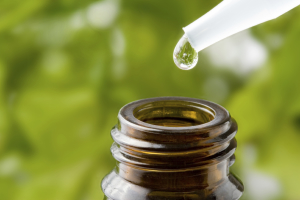 LA: That is a very good point, exactly right. Continuing on the line with Gary Young, one of the other issues that I’ve really witnessed with individuals using essential oils commonly is that they also advertise the use of neat application of the essential oils without any kind of carrier oil to the skin. And I have seen personally in my clinical practice really creating different kinds of skin reactions, skin rashes, sometimes quite severe. What can you say about that subject?
LA: That is a very good point, exactly right. Continuing on the line with Gary Young, one of the other issues that I’ve really witnessed with individuals using essential oils commonly is that they also advertise the use of neat application of the essential oils without any kind of carrier oil to the skin. And I have seen personally in my clinical practice really creating different kinds of skin reactions, skin rashes, sometimes quite severe. What can you say about that subject?
RT: Well this subject has been quite well studied by dermatologists and there are a number of different regulatory authorities that do issue guidelines for to what extent essential oils should be diluted for application to the skin. This particularly applies to product manufacturers, so for example if you’re using lemongrass oil in a product, the IFRA (International Fragrance Association) guideline for lemongrass oil is 0.7% to avoid allergic reactions. So that is a sensible guideline. I think those kinds of guidelines are mostly very sensible guidelines, they make sense and they are trying to say that we don’t want people to have adverse reactions, we don’t want people to have allergic reactions, so this is a safe amount to use.
If you were to use lemongrass undiluted on your skin what you do is you increase risk, you increase the risk of you having an allergic reaction. You may not have one, but the risk increases greatly of that happening.
LA: And would the risk increase the more often you use the application of lemongrass?
RT: Indeed yes. Frequency is another factor in allergic reactions. So let’s say for the sake of argument, that you were using a 10% dilution of lemongrass but if you used that three times a day for a year that would also be a very high-risk situation.
LA: There are those who have even written a book such as David Stewart, The Chemistry of Essential Oils Made Simple (here is a review I wrote some time ago) and he claims in that book that actually allergic reactions – skin reactions of essential oils is not possible. How did that get started? Where did that statement come from?
RT: Well, That’s a myth. It’s true that the immune system will only react to peptides and proteins, which are quite large molecules because very small molecules such are found in essential oils, the immune system can’t recognize them and can’t mount an allergic reaction to those small molecules. However what happens when you put for example, cinnamon bark oil on your skin? Cinnamon bark contains a potential allergen called cinnamaldehyde. The cinnamaldehyde combines with peptides in the skin, with proteins in the skin, to form a new molecule. It’s called a peptide-hapten complex and the immune system can recognize a peptide-hapten complex. And so the end result is yes you can have an allergic reaction to cinnamon bark oil and hundreds of people have had allergic reactions to cinnamon bark oil. It’s one of the most allergen-prevalent essential oils.
LA: Along with clove and different essential oils such as that?
RT: Yes, ylang-ylang, clove, lemongrass – there are a number that are more high risk and as I mentioned earlier, there are guideline for all of these; sensible guidelines where if you dilute it sufficiently that reduces the risk to a negligible risk. There is no such thing as zero risk in this world but we reduce the risk to absolute minimum.
LA: Yes, exactly. As soon as you get in a car, you run a risk.
RT: Exactly, yes.
LA: So one thing that I did notice is which is actually good, on the Young Living Essential Oils website, they have an essential oil safety Frequently Asked Questions (here) where it seems that they are suggesting the use of carrier oils when you apply the essential oils to the skin. But in those FAQs, they are still referring to a reaction that may occur as a detoxification effect. Is it possible to also have a detoxification effect or is it if a person has any type of reaction on the skin that it is an allergic reaction?
RT: You cannot have a detoxification effect from putting essential oils on your skin. If your body is detoxifying that’s probably because you are entering a quite intensive cleansing program of one kind or another. That’s what causes detoxification. Applying something to the body does not cause detoxification. No, you can’t, it’s not possible. If you apply essential oils to your skin and you get an inflammation from that, then that is an adverse reaction. Always. (more on the “detox” myth here)
LA: So you would recommend that a person discontinue the use of that essential oil immediately?
RT: Oh, absolutely. There are three types of adverse reactions on the skin. One is phototoxicity and this has always been widely recognized as a risk. No one has ever said that phototoxicity doesn’t happen and it would be very difficult to deny it, because the results are so dramatic and so severe. And phototoxicity only applies to a very small number of, mostly citrus fruit, oils and if they are applied to the skin in very high dilution and then you go out in the sun, you can have a very, very bad reaction.
The other two types of reaction are allergy and irritation. And allergy and irritation are not the same thing. They are different but they look similar. If you have an irritation reaction once you stop using the product and remove the oil from the skin, then the reaction dies down very quickly. With an allergic reaction it tends to remain inflamed for many hours, sometimes longer than that, and it will come back every time you use the same product in the same dilution. Basically if you have an allergic reaction then your immune system has created antibodies to something in the product or the blend that you have used, and you can assume that you will have that allergic reaction for life now. So you really want to avoid them.
LA: Wow that’s very good information! Moving back to when you first mentioned how you became more interested in the clinical aspects of essential oils with the French book. Another large amount of confusion that I see is with the idea that there are different schools of thought or methods or whatever terminology you would like to use as far as the use of essential oils. How did this get started in your opinion?
RT: I think it got started because in the UK, in the early seventies through the eighties and with the development of aromatherapy over there, people were writing books, starting schools, giving talks – and I certainly was a big part of that – none of us were really talking about giving oils internally because this was bordering on medical practice. We all felt that this was not something we do, we’re basically massage therapists. We don’t give medicines orally; we’re not into internal medicine, that’s not what we do.
LA: You’re not medical doctors.
RT: No, not medical doctors, and not even herbal practitioners, so then in 1990 another French book came out – by Franchomme and Pènoël – and they came over to the UK, and also I think to the US, and they were saying no, oral is good, internal is good, intensive is good you should do this, you can do this, it’s OK. I think the problem is yes it is OK, so long as you know what you’re doing and just as you don’t play with surgeon’s knives or pharmaceutical drugs, you don’t play with these things. You use them appropriately if you know what you’re doing and I think the same applies to essential oils that, yes, you use them appropriately if you know what you’re doing.
And by the way, I have never said you should not ingest essential oils. You may think you heard me say that today. I have not said people should not ingest essential oils; I don’t believe it’s an absolute no-no. What I do believe is that you need to know what you’re doing. You need to know why you’re doing it; what dose you are taking; how long you are going to be taking it for; what the reason is. I don’t think essential oils are substances that we should use just pro-actively, because if you do get a viral infection, if you do get a serious illness and then you want to use aromatherapy and you have been dosing yourself with large amounts of essential oils for years, well now what are you going to do? Because your body’s already now habituated to these oils you have been taking. If you’re talking about very small amounts as you would use in food flavors – if we’re talking about one or two drops a day – that’s fine, that is OK, but if you’re taking a therapeutic dose of essential oils, if you’re taking 10 drops, 20 drops a day just because somebody told you it was a good idea, it’s not a good idea.
LA: So your recommendation would be for individuals to treat an essential oil as far as ingestion more like a pharmaceutical, with the same respect as?
RT: Yes. The way I’m looking at is if you’re sick, you take medicine and then you get well. That is the scenario that I’m picturing, so if you’ve strained a muscle then you apply a liniment, you apply a salve to that muscle, to that skin over that muscle and they often contain menthol and camphor and other essential oil constituents that goes through the skin to the muscle and it does what it does, but once the muscle ache is gone you don’t need to keep applying it, and it’s similar to the way antibiotics are taken. You take antibiotics so long as you need to, you take the course of antibiotics and then you stop. I’m not suggesting that we should be taking antibiotics at all, but it’s the same situation with essential oils. If you have an infection, if you have a respiratory infection, then yes you can inhale essential oils, you can apply them to your chest, whatever, while you’re sick and then you stop. That’s the picture that I am trying to paint.
LA: Understood, so basically what you are trying to say is that the prophylactic use of let’s say oregano essential oil at 15 drops a day is not a good idea?
RT: Not long term, it’s not a good idea, no.
LA: Understood. The other issue that I have seen is the terminology used regarding essential oils. I don’t think that there would be any argument from anyone that if you’re using an essential oil – that you definitely want to find the best quality and unadulterated oil, but there is use of terminology such as therapeutic grade, I’ve even seen clinical grade coming out into the market. Do you have any comments on that?
RT: Yes and these same people will tell you don’t use perfumery grade oils; well there is no such thing as perfumery grade. There is no such thing as therapeutic grade, or clinical grade. These are not grades that are independently verified, they are words that are marketing terms created by the company selling those oils so they will tell you that they are the only people selling clinical grade oils. Well yes, because no one else is making that claim, you are the only people selling what you call clinical grade oils.
LA: And they may have even registered that term as well, copywritten it.
RT: Exactly, they may have done. But also I mean if you’re buying sandalwood, frankincense, copaiba or helichrysum oil, you can only get these from certain wholesalers in the world. If you’re selling blue tansy, helichrysum or frankincense oils you’ve bought them from, in the case of helichrysum, the Balkans, in the case of blue tansy, Morocco. That’s where they come from. Everybody gets them from the same place. So one blue tansy oil isn’t different from the next, one frankincense oil isn’t all that different from the next. They come from the same suppliers, the same origins. So your sandalwood oil isn’t different from the next person’s sandalwood. It may cost a lot more, but it basically is the same oil, unless it’s been adulterated. Sure, we don’t want adulterated oils.
LA: Exactly. The comment that you just made is very, very interesting. So you are saying – let me move back just one second. I have heard from different sources, mainly MLM [multi level marketing] companies that they have traveled the world and sourced certain farmlands such as, for frankincense let’s say. They make it sound as though it’s their own private source for that company. If I understand correctly, what you’re saying is, that no matter what frankincense oil you purchase from any company that basically it has come from the same source.
RT: Well in the case of frankincense there are different sources. They are all in the same region of the world. You can’t grow frankincense in Idaho.
LA: Understood.
RT: You can’t grow frankincense in France. It comes from one region of the world, where that plant grows, the same with myrrh, the same with black pepper, the same with most of these plants. If we are talking about herbs like lavender, sage, thyme, rosemary, yes these are easy to grow in many, many different regions. And sure you can buy land, grow lavender or mint and that can form part of your supply. A problem that we’re seeing now in the aromatherapy world is that the market has got so huge that in same cases there are not enough plants to supply the demand.
We are now in a situation, that perhaps could have been predicted twenty years ago, where the aromatherapy market has grown and grown and grown, and there isn’t enough oil to go around. So plants – oils like frankincense, helichrysum and blue tansy are in very, very, very short supply. So, yes if you are a very large corporation and you have the dollar power to go and buy land in another country or basically take over the supply from a farmer – that sometimes happens. That does sometimes happen. Then you may be virtually in a monopoly situation. I haven’t seen that with an essential oil, but it does happen sometimes with a fragrance companies or with other large corporations because they want continuity of supply.
LA: Of course. Essentially though, if a person has gotten frankincense from the same area, the indigenous in which that plant grows, then for all intents and purposes the essential oil is of the same quality if it is not adulterated. Is that correct?
RT: Yes, it is, absolutely.
LA: That’s very interesting. So what do you see for the essential oil profession and industry? What would you like to see happen over the next twenty year period, as far as standards, as far as use of the essential oils? What would you like to see?
RT: One thing that I would like to see is the separation of sales and education. I made this comment on Facebook earlier this year and it didn’t go down very well because what I’m saying is if you sell essential oils then you shouldn’t be making medical claims, you shouldn’t be making any claims for your oils, you’re just selling oils and the education part should be done by somebody different, somebody wearing a different hat. People were saying well how will I know what my oils are good for? Well the fact is that the situation in the US is almost unique. In the rest of the world there is a separation of sales and education. Especially in Europe, you can’t sell a product and make a medical claim on the label, on the Internet, on a flyer, or anywhere. You can’t and people don’t. Unlike with the FDA the equivalent authorities in Europe actually do carry out what they say they will do. They enforce their rules, where as the FDA tends not to. It tends to say something and then do nothing about it.
LA: Right. So in Europe they will shut it down?
RT: Yes, absolutely. So the essential oil businesses in Europe, if you look at the websites, you won’t see any medical claim. Now when I say medical claim I mean no disease condition is mentioned. You can’t use words like pain, arthritis, or insomnia. You just can’t use those words at all. There is just no work-around. You can’t say “Has been known to help.” or anything like that. You just can’t use those words. If people are making claims they are using words such as warming, soothing, and calming. Innocuous words like that.
LA: No direct medical claims obviously.
RT: I don’t know if it will happen, but think it would be nice if there was a separation of sales and education because then in a way you get away from this situation where you have one company that’s telling you what their product does, what their essential oil does and trying to make a greater claim than the next company.
LA: Exactly. That happens all the time here in the United States for sure. The other things that I have seen going along with claims made is, I don’t know your opinion about it, but it seems to me that many times claims that are being made as far as the “medical uses” of the essential oils are actually of what the herb would be able to accomplish and not necessarily the essential oil. How do you feel about that?
RT: When I got involved in aromatherapy in the early 70s there was very little information about essential oils so it was tempting, I think for all of us at that time, to look at herbal texts and assume that, well, maybe the same things happen with the oil. I don’t think we need to do that now because one difference between now and then is that now we have a tremendous amount of research material; that scientific research has been happening in a big way for essential oils, for essential oil constituents, and there’s a great deal that we do know as well as from aromatherapy and from clinical practice. There is a great body of evidence there too. So we don’t need to borrow information from herbal medicine and if people are doing that then it can be misleading. Obviously some herb and herb extracts contain active constituents that are not found in the essential oil and so the effects are often different.
LA: Exactly, very good. What would your recommendations be for individuals who would like to learn good, solid information about essential oil safety and perhaps even some uses of essential oils? Where would you recommend that they go to do that?
RT: There’s online training, there are books, there’s a lot of free information on social media. Obviously I’ve written a book called Essential Oil Safety and I think it’s a good book.
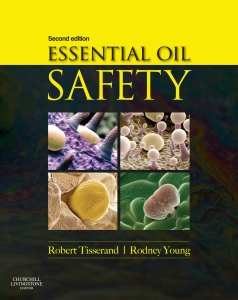 LA: I think it’s pretty good too! I would highly recommend that anyone who is interested, get your book immediately. It is extremely well written and documented.
LA: I think it’s pretty good too! I would highly recommend that anyone who is interested, get your book immediately. It is extremely well written and documented.
RT: There is one thing that I would like to say which is that, if we could put Gary Young, Young Living and David Stewart in one box, then what I used to hear coming from that direction was that essential oils, if they’re natural are totally safe apart from phototoxicity; apart from phototoxicity really there is nothing that can go wrong so as long as you are using the right brand of essential oil. And then I think two, three years ago I started to hear more cautionary messages. I started to hear that well yes, there are things that we are calling hot oils and if you get redness on your skin then you need to apply a vegetable oil. So there was an acknowledgment that skin reactions other than phototoxicity could happen. I think what we’re seeing now is quite a big change because as well as acknowledging adverse skin reactions, now there is talk about the possibility of interactions with medications… not using undiluted oils on the skin…the possibility of risks during pregnancy…and so I think the cautionary messages that we’re hearing now – and this is a good thing – I think there is a greater and wider recognition now that a number of different adverse reactions are possible. They are rare; they don’t happen very much but they are possible.
LA: Exactly right. Even in the FAQ document itself on line six, the last sentence in that line is that an excessive use of essential oils may increase the risk for adverse reactions which if it’s only a detoxification effect what could possibly be an adverse reaction than other than allergic reaction?
RT: Yes, I had the same thought.
LA: The other thing that I see going along with this is David Stewart’s book, basically this FAQ on the Young Living Essential Oils website is 180 degrees from what is being stated in the current edition of his book.
RT: Yes. I don’t know what people on the Young Living social media groups are saying to each other. That might be interesting to know. They might be feeling a little confused at this point.
LA: Alright. Well again, thank you very much Robert. I appreciate it.
RT: Fantastic. Good to talk to you.
LA: Good to talk to you as well. You have a good morning.
RT: You too. Bye.
LA: Bye.
LA: There you go folks. I hope that you have found this information very useful, especially if you have heard about essential oils, you’re thinking about getting into the use of essential oils or you are currently using essential oils I hope that you find this information very helpful to you.
Again, I mentioned at the beginning of the program that Robert has written several different books. I do recommend that you get his Essential Oil Safety textbook. It will prove to be extremely helpful to you if you do so.
Want to learn about How Essential Oils Work in the Body to be able to use them safely and efficiently? Sign-up for Robert’s free mini-course!
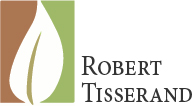
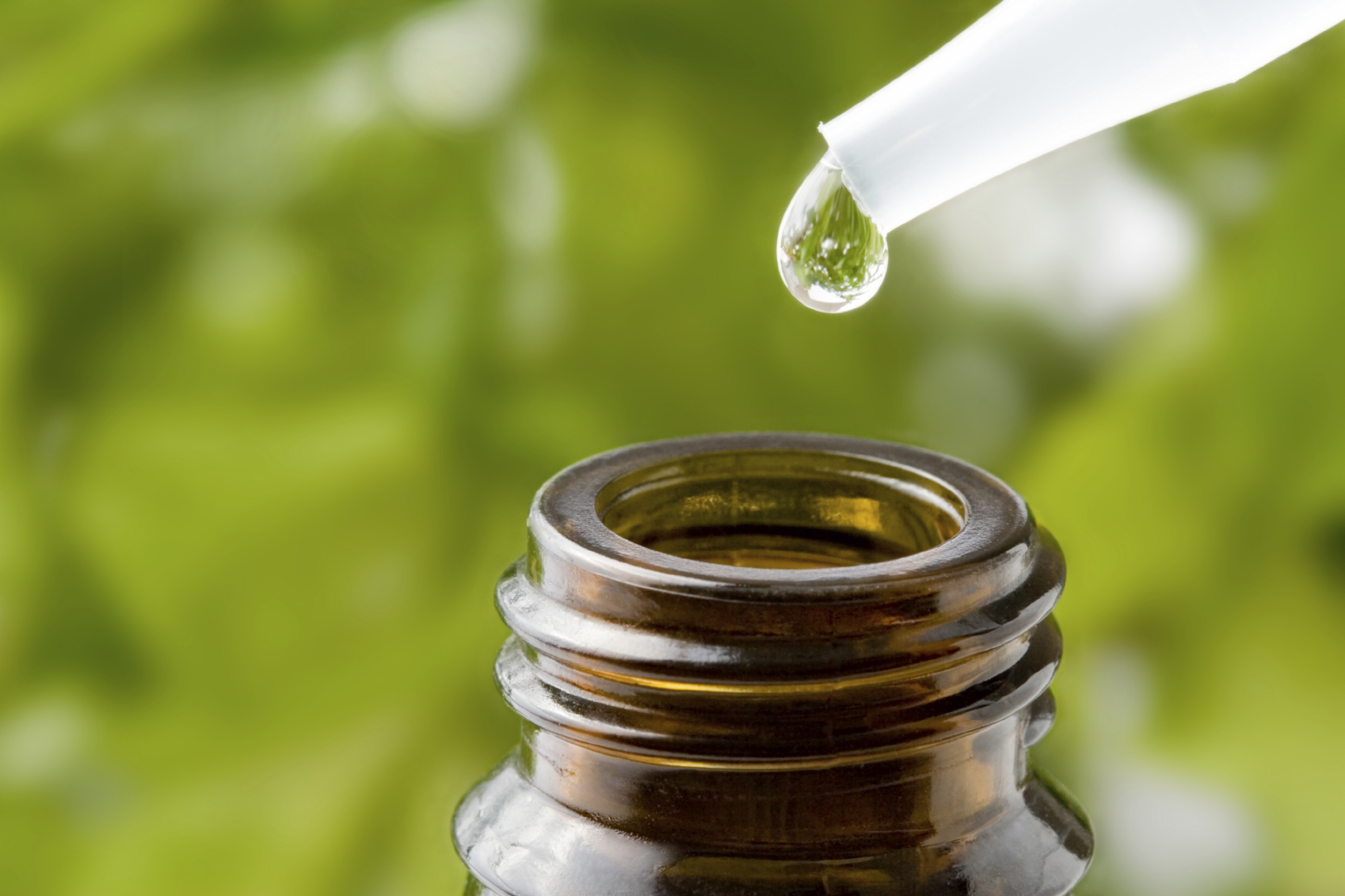

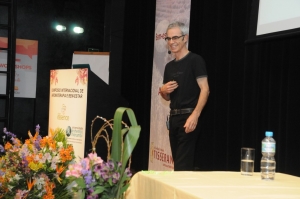
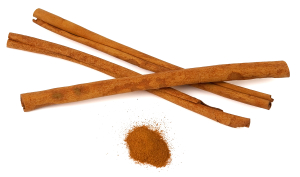
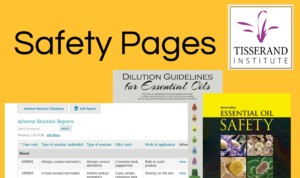
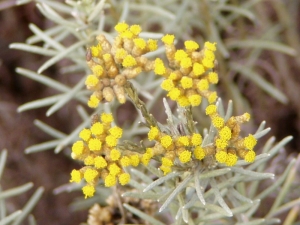
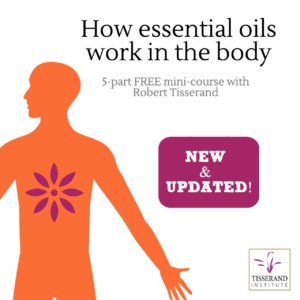
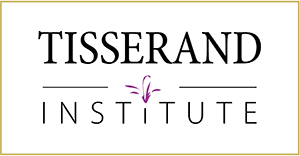
Great interview, glad I found it
Excellent and informative interview! Thank you very much, Mr. Tisserand.
I’d like to ask about yarrow essential oil. I know it contains a toxic ingredient, ‘thujone’, and I also know thujone is a type of neurotoxin and it is very dangerous. Is yarrow oil safe for taking it through the nose?
Some yarrow oils contain thujone, and some contain none at all. The most I have seen is 3%, which indicates a maximum topical dilution of 8%. For inhalation, I would be very careful with a thujone-containing yarrow oil – avoid in children and in anyone with a history of seizures.